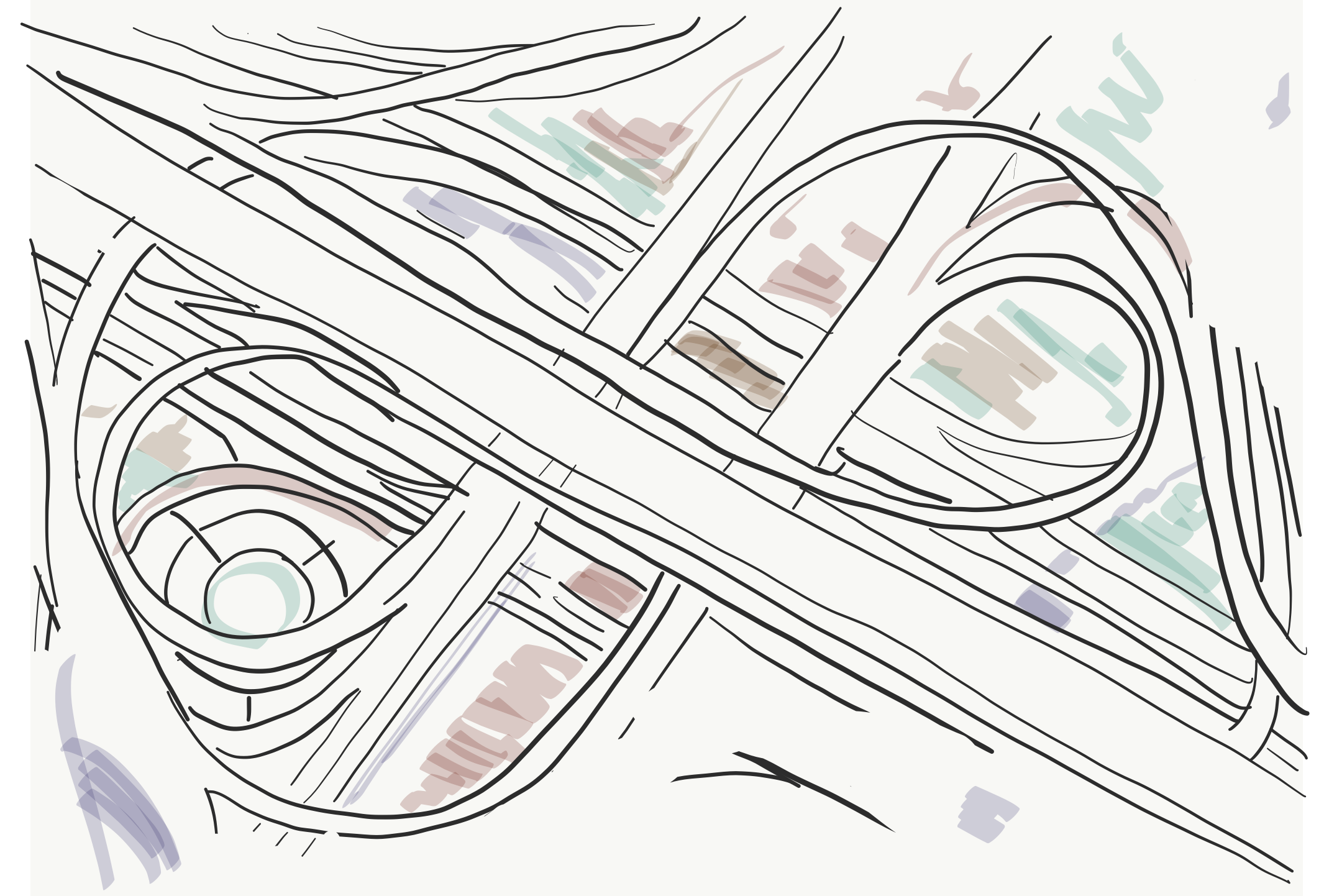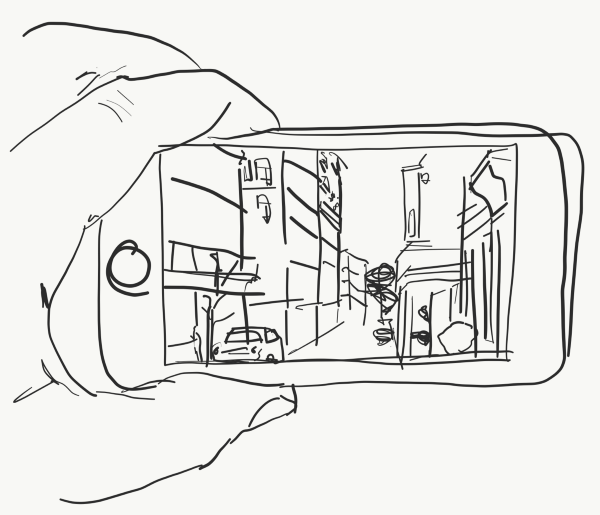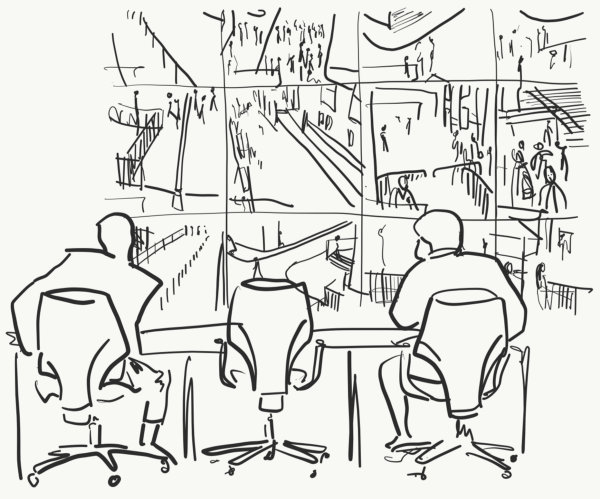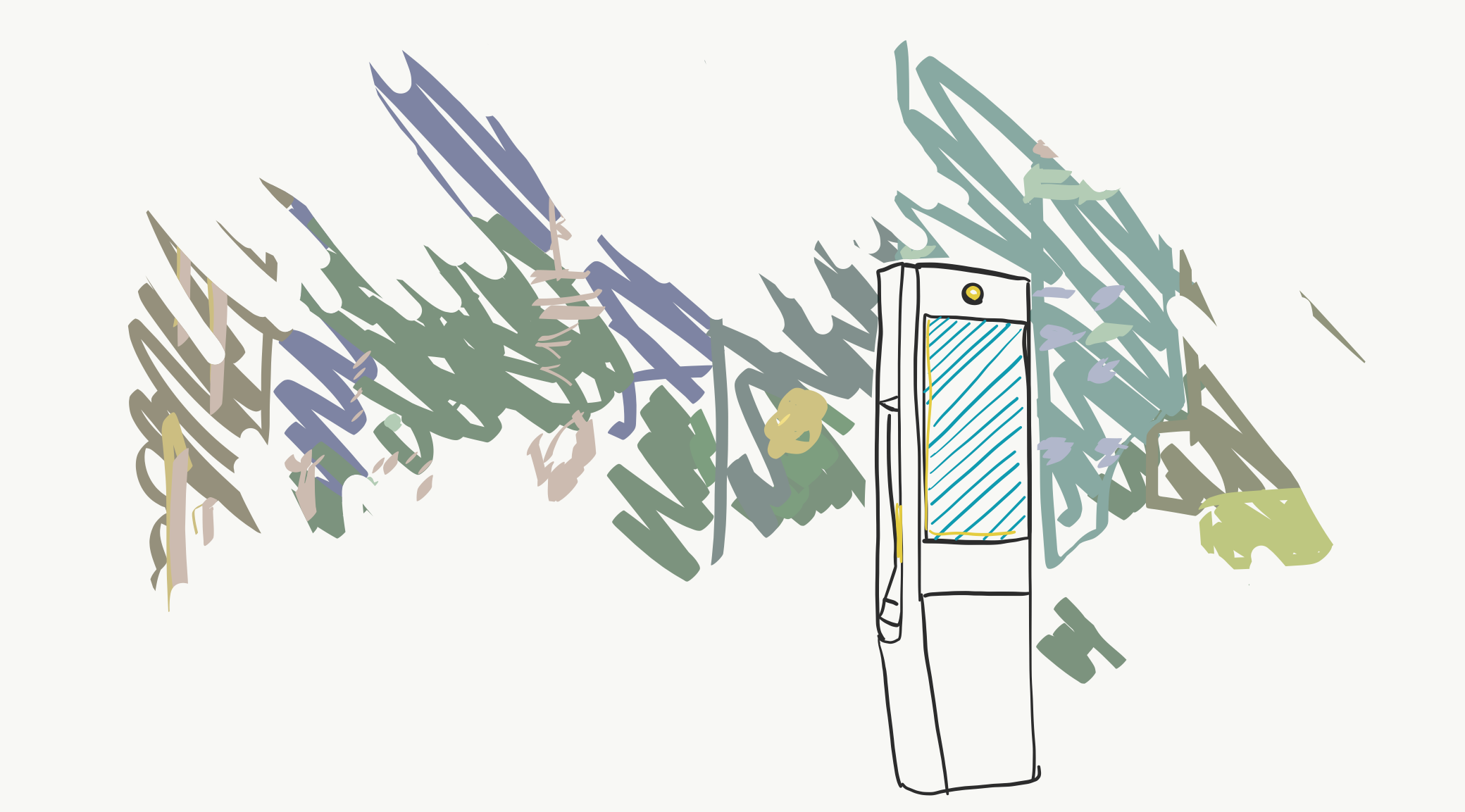
For the past four years, I’ve had the notion that I was going to start a company. The underlying feeling was that I wanted to work on something that I could passionately take full responsibility for. Although this has been a constant desire, I have not taken the concrete steps to make this a reality. Instead, I have developed a career writing software and learning the contracting market. Rather than develop a business plan and try to raise money, I have built and released many side-projects. Each project has given me greater understanding about a technology or field of interest.
I have actively thrown myself into whatever tasks and opportunities I had in front of me. As a result, I’ve been able to meet numerous talented and amazing people in the media, art, tech, and social-cause oriented spaces.
I started web development around the time mobile development became important. I watched JavaScript explode from a complementary skillset with html and css, to the primary language needed to understand a seemingly unending amalgamation of frameworks.
The interesting projects I would hear about were related to building new social networks or building off of existing ones. Mobile location technology was all the rage, but not fully matured and photo sharing services were growing in influence. I even made an photo-based iOS application myself, while making a very conscious effort to not needlessly recreate Instagram.
Whats next
Most recently, I‘ve been really excited about mapping technologies and the emergence of more real-time related applications. When I noticed the popularity of “big data” open source projects like Hadoop and Spark, I didn’t feel like I had anything to experiment with. I tried my hand at creating an online market-platform site. I saw the rise of monthly-box-for-X services and considered how hard it would be to create a worthwhile logistics service that could fall under a monthly-box-for-X, or a more attractive uber-for-X. I even played with what is possible with IoT devices and how I might go about producing something if I validated an idea worth manufacturing. I researched bluetooth specifications, power delivery mechanisms, and wondered what interesting art-oriented applications I could scrap together. Overall, I never committed enough to fully see the fruits of my exploration. Yet, all the processes were valuable for my own growth.
Now, it feels as if there is even more to explore, and while I don’t know how, I can clearly feel that the path forward will be greater in scale.
I’m excited about the blockchain, machine learning, and new augmented/virtual reality. Of all new emerging technologies, I’ve spent the most time trying to understand and utilize machine learning for practical purposes. While I understand the blockchain in theory, I don’t feel any deep affinity for the product. I’m not driven by the anti-establishment/pro-sovereignty ideologies that fuel the crypto culture. I also don’t find the AR or VR space as interesting as those I know who have gone “all in”. I like the idea of a physical space complemented with virtual layers, but haven’t had any “Aha!” moments around how to execute the process.

Computer Vision
Image analysis and the seemingly interesting data that can be extracted through machine learning continues to pique my interest. Further, the horizon of changes in transportation (read: self-driving cars) gives me conviction that real-time location-dependent image analysis data is going to have growing importance.
Academia
I feel there is interesting work being done in the academic and private sectors for both of these areas. In the academic sector, I previously saw reputable universities doing a lot of image-oriented work that wasn’t immediately interesting. The highly theoretical work around compression, color, or the like are not appealing to me. The work around medical image analysis seems like a large field, but is completely unattractive in my mind. I saw numerous research projects around the field of 2D-image-to-3D space translation. In an isolated study, these image-to-X projects aren’t interesting, but the applications of these studies in the real world seem worth exploring.
I would like to spend a clear amount of time to fully grok the academic landscape of image-related research being done. I think reviewing the top universities around the United States as well as around the world would be highly enlightening for myself and whatever I may do.
I’ve tried to determine if returning to school for a masters program in further study would be worthwhile. From my limited exposure, I haven’t found a reason why this would be critical, but I can imagine the fixed time to focus on an isolated topic would be highly beneficial. The opportunity to surround myself with likeminded people seems worthwhile.
Private sector
I have been continually fascinated with the idea of using a camera as a multi-use sensor. The software-oriented computer vision tasks that exist seem highly unexplored. This is something I would like to spend more time to map out for myself. The newer interesting applications, such as self-driving cars, and the improvements around object recognition is fascinating. I know there are tons of other areas of interest that make this field worth exploring. I want to learn about everything from satellites to security cameras, advertising to real-estate, self-driving fleet vehicles to augmented reality cameras.
From the “look what may exist 20 years from now, and ask yourself how to apply it to today” perspective, this seems like the most exciting field to me. I would like to commit significant time to understanding the future-to-be opportunities, ecosystem, and strengths/weaknesses of this space when applied to real world problems.

Beyond technical exposure, the philosophical implications of having a society devoid of privacy is scary. Practical commercial value feels like an area that will continue to develop into the future and with it, public understanding. Rather than waiting for the Edward Snowden big-data equivalent moment for camera technology, as Gary Chou succinctly put it, the social understanding and regulatory boundaries need to be ironed out. That being said, cameras will inevitably be everywhere and data from them will be mined by private companies. I’d like to be on the side of determining the positive value that can be created here.
Location
Mapping technology has continued to pique my interest. I started out wanting to learn more when I was doing graffiti and wondering how to avoid getting caught. “Writers” would talk about how the police used mapping technology for pinpointing artists. The running joke was that an artist’s biggest fan was the police. They had the most photos and biggest record of all the work done by a person. I recall how cities would catch artists by mapping all the reported “tags” from a single person. Through mapping the locations, the artist’s home neighborhood could often be inferred, and the overall investigation significantly narrowed. This was 15 years ago. I have no idea what the official process of this kind of data analysis is called, but I’m sure it has improved since then.
I can imagine the value when applying the same modes of analysis to any other dataset, be it social media data or commercial behavior. I’d like to deepen my understanding around this area. I imagine there is a lot to be learned around the geospatial analysis often used in natural resource prospecting. I want to learn more about how to make use of satellites. This is a superpower that was never accessible in the past, unless you were a nation-state. Hedge funds are now using satellite imagery to analyze the supply-demand of the retail industry by analyzing parking lots and transport vehicles across the world. The parallels here to other industries seem equally endless and untapped. With the adoption of cameras everywhere on the ground, I imagine the same means of analysis over time to be highly valuable.
I want to commit more time to understanding the overall problems in the space surrounding geospatial data over time. I imagine many opportunities when this is teamed up with image analysis over time and in real-time. I’d like to further understand the private sector applications and the academic fields best-suited to implement these technologies.
Overall
I slipped into programing at a time that made it possible for me to have one step ahead of the then-current incumbents. I feel like now, again, I am in a place where my past experience gives me unique insight into what I could further explore. The fields that are of particular interest, image analysis and geospatial data, seem worth understanding and are now as approachable as they will ever be. Given that my personal life and career is financially secure, I will spend the next two years personally exploring and understanding these fields. My goal is to deepen my ability to see how these fields can be used for commercial gain. I will deepen my outlook into the forefront of academic research, private sector practices. Ideally, through this process of exploration, I can document my findings for others who also find themselves interested but unsure how to further explore these areas.
Thanks to Gary Chou for suggesting to write this and help with synthesizing ideas. And thanks to Jihii Jolly for fixing the editing nightmare.
